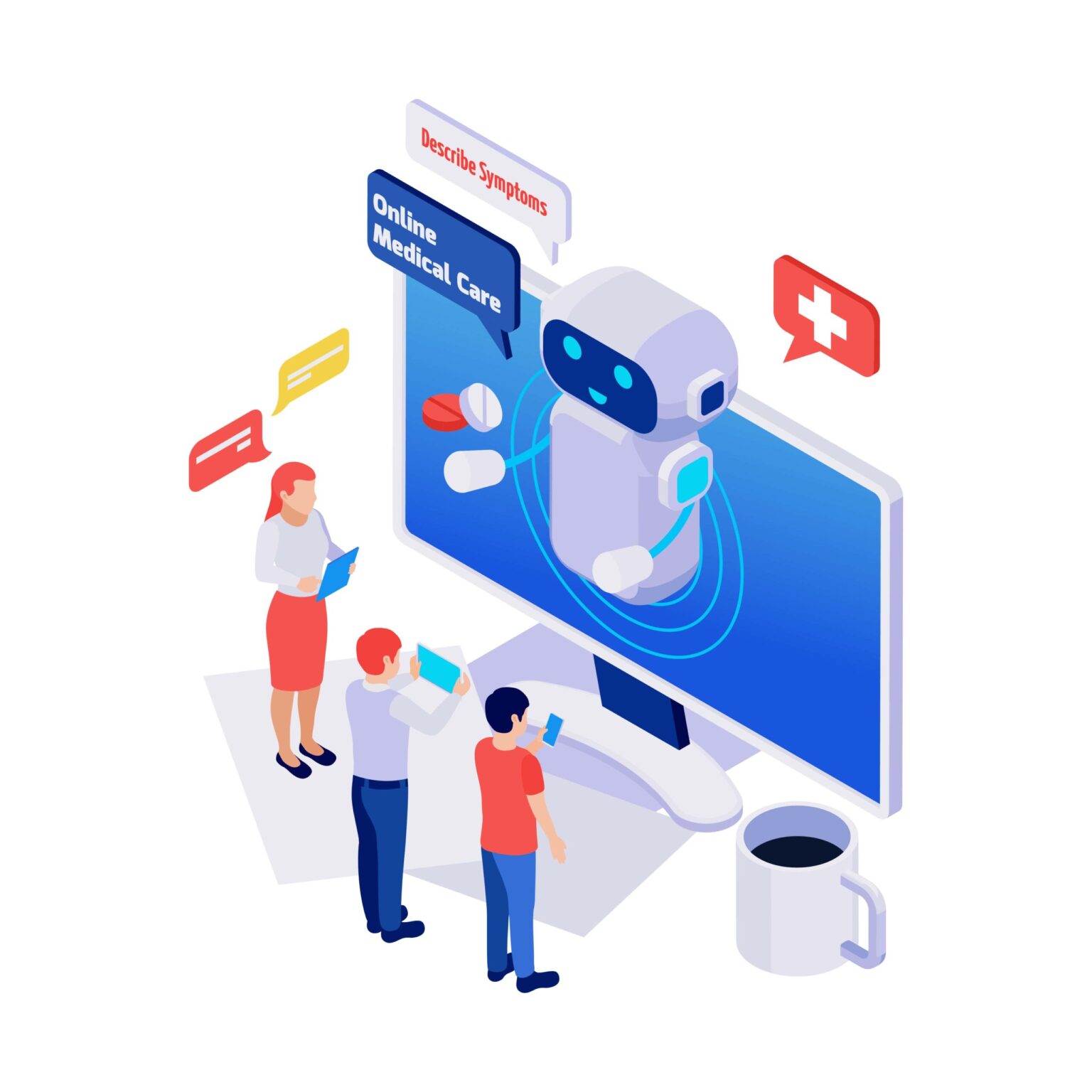Artificial intelligence (AI) has the potential to revolutionize telemedicine by enhancing the accuracy and efficiency of diagnosis and treatment. Here’s how AI is being used in telemedicine:
Medical Image Analysis: AI algorithms can analyze medical images such as X-rays, MRIs, and CT scans to assist healthcare providers in detecting abnormalities and making accurate diagnoses. AI-powered image analysis can help identify early signs of diseases, provide second opinions, and prioritize cases based on urgency.
Clinical Decision Support: AI systems can analyze patient data, medical records, and scientific literature to provide clinical decision support to healthcare providers. By considering a vast amount of information, AI algorithms can suggest potential diagnoses, recommend treatment options, and provide relevant research and guidelines, assisting healthcare providers in making well-informed decisions.
Virtual Assistants and Chatbots: AI-powered virtual assistants and chatbots can interact with patients and provide them with basic medical information, symptom assessments, and guidance on when to seek medical attention. These AI systems can help triage patients, answer common questions, and offer initial recommendations, improving access to healthcare information and reducing the burden on healthcare providers.
Remote Monitoring and Predictive Analytics: AI algorithms can analyze data from wearable devices and remote monitoring systems to track patients’ health conditions and identify patterns or anomalies. By continuously monitoring patients’ vital signs, activity levels, and other health indicators, AI systems can provide early warnings of potential health risks and enable timely interventions.
Natural Language Processing: AI-powered natural language processing enables computers to understand and interpret human language. This technology can be applied to transcribe and analyze medical conversations, extract relevant information from medical records, and automate documentation, saving time for healthcare providers and improving the accuracy of medical records.
Drug Discovery and Treatment Optimization: AI algorithms can analyze large volumes of medical data, research papers, and clinical trials to accelerate drug discovery processes and optimize treatment plans. AI systems can help identify potential drug candidates, predict drug responses based on genetic profiles, and personalize treatment options for individual patients.
Patient Triage and Appointment Scheduling: AI systems can assist in patient triage by evaluating symptoms and urgency, helping healthcare providers prioritize and schedule appointments accordingly. AI algorithms can analyze patient data and historical trends to predict patient flow, optimize scheduling, and improve the overall efficiency of healthcare operations.
While AI has the potential to enhance telemedicine in various ways, it is important to ensure ethical considerations, data privacy, and regulatory compliance in the implementation of AI systems. Collaborations between AI experts, healthcare professionals, and regulatory bodies are crucial to ensuring the safe and effective integration of AI into telemedicine practices.



